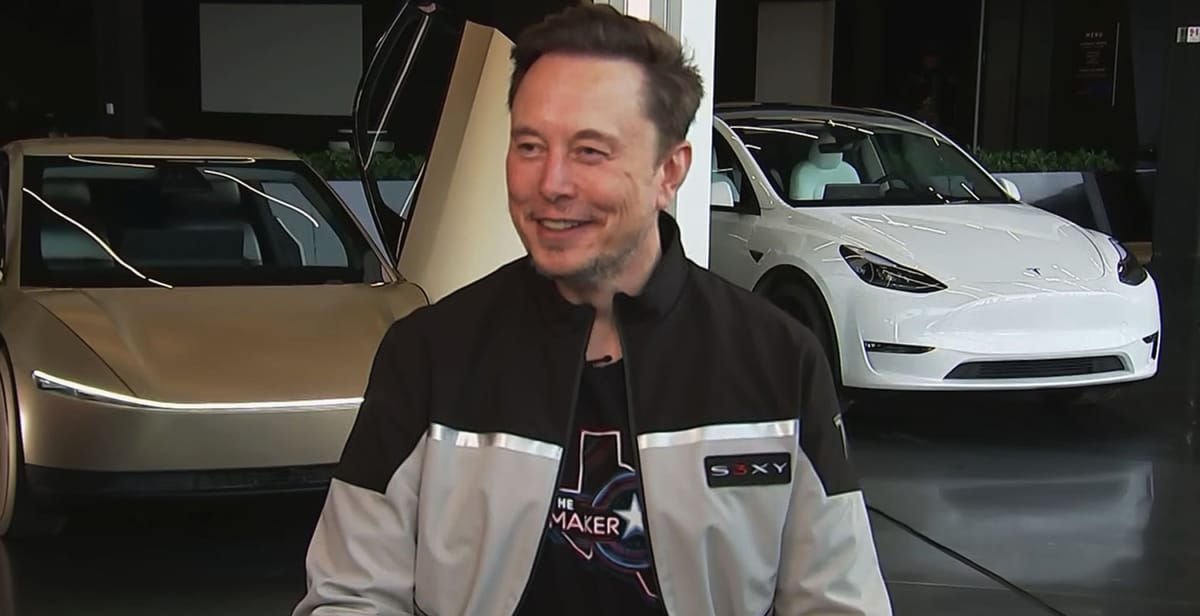Tesla CEO Elon Musk has confirmed what might be Samsung's most important foundry contract ever: a $16.5 billion deal to manufacture the electric carmaker's next-generation AI6 chips at Samsung's upcoming Texas facility. The agreement, which runs through 2033, represents Samsung's largest foundry order to date and could be a game-changer for both companies.
Key Points:
- Samsung's Taylor, Texas fab will be dedicated exclusively to Tesla's AI6 chip production starting in late 2025
- The deal is worth $16.5 billion over eight years, Samsung's largest foundry contract ever
- Tesla is diversifying its chip supply beyond TSMC while Samsung gets a major client win for its struggling foundry business
"Samsung's giant new Texas fab will be dedicated to making Tesla's next-generation AI6 chip," Musk posted on X late Sunday evening. "The strategic importance of this is hard to overstate."
Samsung’s giant new Texas fab will be dedicated to making Tesla’s next-generation AI6 chip. The strategic importance of this is hard to overstate.
— Elon Musk (@elonmusk) July 28, 2025
Samsung currently makes AI4.
TSMC will make AI5, which just finished design, initially in Taiwan and then Arizona.
The announcement caps off a wild few years for Tesla's chip strategy. The company currently uses Samsung-made AI4 chips in its vehicles, while TSMC manufactures the recently completed AI5 design in Taiwan (with production later moving to Arizona). Now Samsung gets the AI6 contract, creating an interesting semiconductor tug-of-war between the world's top two chip foundries.
But this isn't just about Tesla diversifying its suppliers. Samsung's foundry business has been bleeding money — posting over $1.4 billion in operating losses in Q4 2024 alone — while struggling to compete with TSMC's dominance. The Taiwanese giant controls 67% of the global foundry market compared to Samsung's measly 8.2% share. Samsung desperately needed a marquee client to validate its advanced manufacturing capabilities, and Tesla just gave them exactly that.
The timing couldn't be better for Samsung. The company's foundry revenue declined 12.4% recently while TSMC posted strong 13% quarter-over-quarter growth, highlighting just how far behind Samsung has fallen. This Tesla deal represents roughly 7.6% of Samsung's total 2024 revenue and provides the kind of long-term stability the foundry division sorely needs.
What makes this deal particularly interesting is Tesla's hands-on approach. "Samsung agreed to allow Tesla to assist in maximizing manufacturing efficiency. This is a critical point, as I will walk the line personally to accelerate the pace of progress," Musk said, adding with characteristic flair that the fab is "conveniently located not far from my house."
Tesla's involvement in the manufacturing process hints at something deeper than a typical customer-supplier relationship. The company has been aggressively verticalizing its operations, from building its own batteries to designing custom chips. Having direct input into Samsung's production processes could give Tesla unprecedented control over its semiconductor supply chain.
The AI6 chip itself is designed to be Tesla's most ambitious yet. It's intended as a unified platform for vehicles, robots, and data centers, building on Tesla's Dojo chip architecture while leveraging Samsung's 2-nanometer process technology. If Tesla hits its targets, the AI6 could deliver exaflop-level performance — the kind of computational horsepower needed for truly autonomous driving.
This matters because the autonomous driving chip market is exploding. The sector is expected to grow from $25.7 billion in 2025 to $46.1 billion by 2032, with Tesla positioned as both a major consumer and competitor. While companies like Nvidia dominate the high-end AI training market, Tesla is betting it can design more efficient inference chips optimized specifically for real-world driving scenarios.
Samsung's Texas facility, still under construction in Taylor, has faced delays and struggled to attract major customers. The plant was originally slated to produce 4-nanometer chips but has been upgraded to handle more advanced processes. Having Tesla's AI6 as an anchor tenant could finally justify the $17 billion investment and help Samsung establish a meaningful presence in the U.S. market.
The geopolitical implications are significant too. As tensions between the U.S. and China continue to simmer, having domestic chip production becomes increasingly valuable. Tesla's partnership with Samsung ensures critical AI chips will be manufactured on American soil, reducing supply chain risks while supporting the Biden administration's push for semiconductor reshoring.
For Samsung, this deal does more than just fill factory capacity — it validates the company's advanced manufacturing capabilities. Landing Tesla as a client sends a strong signal to other potential customers that Samsung can compete with TSMC on cutting-edge processes. The company recently hired former TSMC executive Margaret Han to lead its U.S. foundry operations, clearly preparing for this kind of expansion.
The broader autonomous driving market is heating up fast. The global autonomous driving market is expected to reach $668.6 billion by 2033, and Tesla is racing to maintain its lead against competitors from Waymo to Chinese companies like Baidu. Having dedicated chip manufacturing capacity could be the edge Tesla needs to scale its Full Self-Driving technology globally.
Musk hinted the deal could grow even larger than the announced $16.5 billion, which makes sense given Tesla's ambitious robotaxi plans. If the company successfully deploys autonomous vehicles at scale, chip demand could skyrocket beyond current projections.
Samsung's stock jumped over 6% on the news, reaching its highest level since September 2024. For a company that's struggled to gain traction in the foundry business, landing Tesla as a dedicated customer represents a potential turning point. The question now is whether Samsung can execute on the manufacturing side and deliver the quality and yields Tesla demands.

